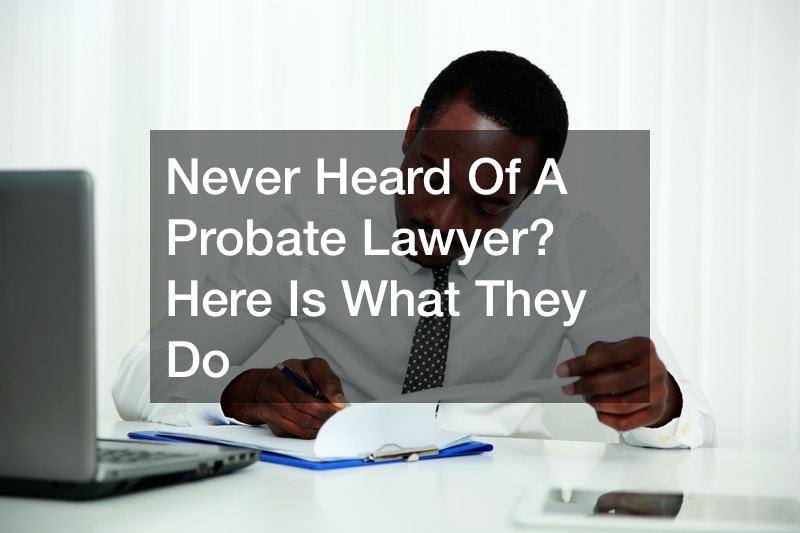
You see and hear ads for personal injury lawyers on TV and radio. You probably know that you can call an injury lawyer for a car accident. But you might not know what other cases fall within the scope of personal injury law.
All lawyers take the same courses in law school. One of those courses is called tort law. Torts are wrongs that one person or business does to another person or business. Personal injury lawyers practice tort law.
Here are some ways to know when to call your personal injury lawyer.
Understand What Qualifies as Personal Injury
Tort law covers a broad range of legal issues. But rather than thinking of tort law as personal injury, you can think of it as covering civil wrongs. ‘Civil’ means that these wrongs are handled in civil court through lawsuits rather than criminal court through prosecution. ‘Wrongs’ means that the damage can be to your body, property, or reputation.
Torts fall into three broad categories based on what you need to prove to establish liability of a tortfeasor — the person or business who committed the tort. These categories are:
- Strict liability: Some torts merely require you to prove that the tortfeasor committed the act. Strict liability torts usually cover actions where the victim would have little or no way to prove the tortfeasor’s state of mind. They also cover actions that are so dangerous that the state of mind is not relevant. For example, keeping a wild animal, like a boa constrictor, would make you strictly liable for any injuries caused by the animal. Merely keeping the animal makes you responsible for all its actions regardless of the precautions you take to prevent them.
- Intentional torts: Some torts require you to prove the tortfeasor’s intent to commit the act. Intentional torts are limited to specific actions like defamation, assault, or battery. To win a case claiming an intentional tort, you must prove that the tortfeasor knowingly engaged in the action. For example, jumping off a stage and landing on you is battery while falling off a stage and landing on you is not battery even though it has the same effect.
- Negligence: Some torts require you to merely prove that the tortfeasor should have known the act could damage you. This is a lesser state of mind than intent because it uses the ‘reasonable person’ standard. If a reasonable person would know that the act could damage you, the tortfeasor was negligent even if they did not know. Negligence covers most of the work personal injury lawyers do.
If you think you need legal representation for a tort case, you should schedule a consultation with a personal injury lawyer. Most personal injury lawyers offer free initial consultations. If your case falls within the scope of the personal injury lawyer’s practice, you can hire the lawyer. If your case does not constitute a tort, the lawyer can steer you to the right kind of lawyer.
Product Causes Your Injury
One way to know when to call your personal injury lawyer is how you received your injury. If a business or person causes your injury, you probably have an injury case. If the cause of your injury cannot be traced to a person or business, you probably do not have an injury case. For example, if your car is hit by a rock that naturally dislodged from a hill, you probably do not have a lawsuit for your injuries.
An example of where a business can be liable for an injury is product liability. Businesses are strictly liable for injuries caused by their products. To prevail in a product liability case, you must prove the product was defective. The existence of a defect provides the link to the business that justifies liability.
A defective product lawyer can establish liability for product-related injuries in three ways:
- Design defect: This means the product is inherently dangerous because it has a built-in defect. In other words, there is no safe way to use a product with a design defect. Some examples of products with design defects include a morning sickness drug that caused birth defects and lawn darts, a game where the object was to throw a sharp, weighted dart at a lawn target.
- Manufacturing defect: This means the product has safe use, but the way the product was made caused it to become dangerous. Put another way, a design defect occurs during the product design process whereas a manufacturing defect is usually caused by the factory that made it. The best-known example of a manufacturing defect is a tire where the adhesive layer was too thin to hold the tread to the tire. This led to tread separation that caused several SUV rollover accidents.
- Warning defect: A warning defect either fails to warn customers of the risks of using the product or fails to instruct them in the safe use of the product. An example of a warning defect is cigarettes. Evidence in tobacco lawsuits showed that tobacco companies knew that smoking causes cancer. But the company failed to pass that information on to its customers with a warning.
Work Accident Causes Your Injury
Another example of when to call your personal injury lawyer is a work-related injury. Again, how you received your injury tells you that a personal injury lawyer can help you.
Workers’ compensation is a system used in 49 states where an insurer is strictly liable for work-related injuries. But in exchange, workers waive their rights to sue their employer for on-the-job injuries.
This means that a worker receives workers’ comp benefits regardless of why or how the injury happened. If the employer was negligent in failing to provide safety equipment, the worker is eligible. But the worker is also eligible if the worker failed to use the safety equipment correctly.
The reason for imposing strict liability in this situation is that the worker needs to be taken care of regardless of the cause of the injury. So, workers’ comp eliminates the cause from being considered in determining benefits.
However, strict liability does not mean that workers’ comp is a free-for-all. A workers’ comp insurer can deny a workers’ comp claim for many reasons including:
- The injury was sustained on the employee’s own time. If you were injured at a restaurant on your lunch break or while driving to or from work, workers’ comp probably does not apply. But if you were on a work-related errand when you were injured, you may be eligible to file a workers’ comp claim. For example, if you were picking up office supplies during your lunch hour, you can probably claim workers’ comp benefits if you get into a car accident. This is true even if you also picked up your lunch on the same trip.
- The injury was the result of horseplay. Horseplay is one of the reasons a workers’ comp claim can be denied even if the injury occurred at work during the workday. The theory is that horseplay is outside the scope of your employment duties, so any injury sustained during horseplay is not the employer’s responsibility.
- The injury was caused by intoxication. Coming to work while intoxicated also does not serve the employer’s purposes. As a result, injuries that are caused by intoxication do not fall under workers’ comp. For example, suppose you have alcohol or drugs in your system and you are injured in a fall because you forget to attach your safety harness. The insurer will probably deny your claim on the grounds that you would have remembered to use the safety equipment if you had not been intoxicated.
Workers’ compensation claims usually go smoothly and do not require a workers’ comp lawyer. But when the workers’ comp insurer tries to reduce or deny your claim, you may need to call a work injury lawyer to fight the insurer.
Animal Attack Causes Your Injury
As mentioned above, anyone who keeps wild animals is liable for wild animal attacks. But the picture becomes much muddier when the animal involved is a pet.
Knowing when to call a personal injury lawyer about a dog bite will depend on your state. Some states impose strict liability on dog owners for dog bites.
Others require some proof on negligence. These states usually allow a dog ‘one free bite’ before imposing liability on the owner. In these states, dog owners are only liable if they should have known the dog would bite.
As a result, you should probably speak to a dog bite lawyer after a dog bite to determine the law of your state.
Medical Errors Cause Your Injuries
Another example of knowing when to call your personal injury lawyer based on how you were injured is medical malpractice. If a medical error caused your injury, you should consider talking to a malpractice lawyer.
Malpractice happens when a healthcare provider fails to provide reasonable care under the circumstances. This is the negligence standard. As such, you do not need to prove that the healthcare provider intended to engage in the action that harmed you. Instead, you only need to prove that a reasonable healthcare provider in the same circumstances would have done something differently.
For example, one type of medical error happens when a patient is misdiagnosed. If a reasonable doctor with the same information would have diagnosed the patient differently, the doctor might have committed malpractice.
Driver Negligence Causes Your Injury
Traffic accidents are an example where how you were injured might not tell you when to call your personal injury lawyer. Thousands of people are injured in traffic accidents every day. But not all of them are entitled to compensation. Traffic accidents only justify compensation when the accident was caused by negligence.
For a car accident injury lawyer to prove negligence, the lawyer must show that one of the drivers failed to drive in a reasonably prudent manner. Proving negligence does not require that the driver broke a traffic law. But it does require proof that the driver did something that a reasonably prudent driver would not do.
For example, the most common type of motorcycle accident happens when a driver turning left fails to see an oncoming motorcycle and turns in front of, or into, the motorcycle. In this case, a motorcycle accidents lawyer could easily prove negligence since the driver failed to exercise reasonable care in watching for motorcycles and yielding to oncoming traffic.
Business Negligence Caused Your Injury
Occasionally, a business’s negligence will lead to an injury. This is a clear example of when to call your personal injury lawyer. Business negligence can cause many types of accidents. The common thread is that the business could have avoided the accident by adhering to a reasonable standard of care.
Some examples include:
- A trucking company loads a semi-truck improperly and the load shifts during transport. When the accident causes an injury, you should consider calling a semi-truck accident law attorney.
- A grocery store fails to clean up a spill. If you slip and injure yourself, you can call a slip-and-fall accident lawyer.
- A garage neglects to secure the plug on your oil pan after an oil change and the leaking oil catches fire. You can call a personal injury attorney.
Your Injuries Are Personal
It might seem obvious, but you know when to call your personal injury lawyer when you receive personal injuries. Tort law remedies very personal wrongs. Some examples include:
- Reputational damage: If you are defamed, your reputation can be destroyed.
- Bodily injury: Injuries can cause you pain and suffering and require expensive treatment and therapy.
- Death: Death can have physical, emotional, and financial consequences. When a death occurs due to the negligent or intentional acts of another, you should call a wrongful death lawyer.
Personal injury lawyers handle more than car accidents. Understanding when to call your personal injury lawyer can help you protect your right to fair compensation when you have been wronged.








